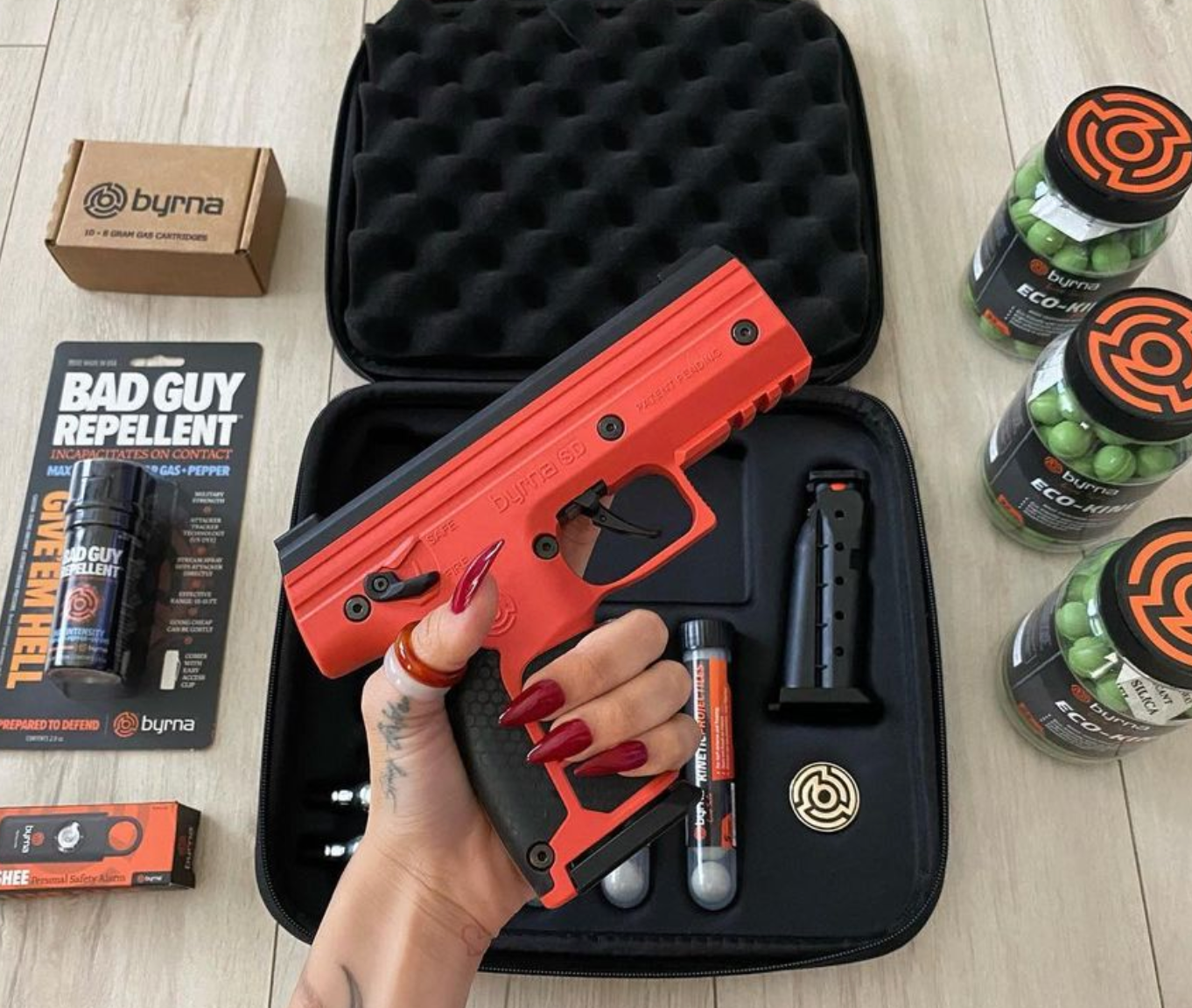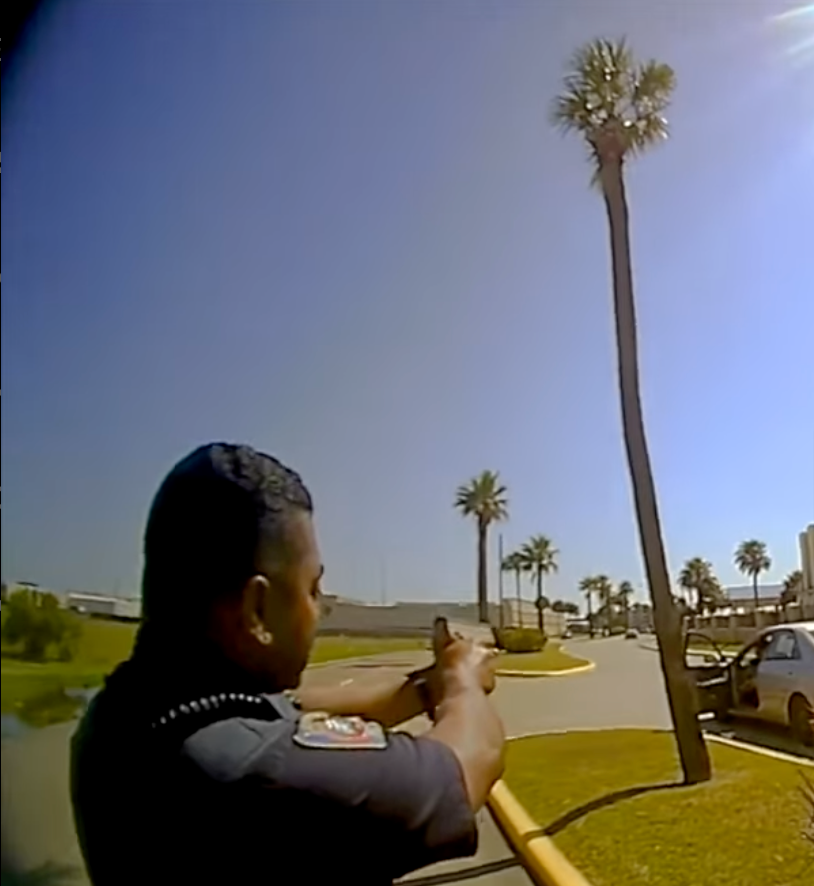
A lot of Canadians say that they don't feel safe when they walk alone at night or when they are in uncertain situations. Recent cases where police stopped people for carrying expandable batons raise a big question about personal safety in Canada.
Steel batons may look like helpful self-defense tools, but Canadian law takes a strict stance on them. You'll find them online and in some shops pretty easily, so plenty of people think they are legal to carry around. Section 84(1) of the Criminal Code and RCMP policy outline laws that affect anyone who thinks about personal protection options. You have to know these laws completely before you make any purchase.
Steel baton ownership isn't as simple as paying for it at the counter and walking away. You might run into criminal charges just for having it in public spaces.
Police usually seize batons on the spot. In plenty of cities across Canada, people have received warnings or formal charges after standard traffic stops, and the experience can leave them worried about their future. For a lot of people, that legal uncertainty can add stress instead of the security they were originally looking for.
If you want a defensive tool in Canada, legal options like noise alarms or personal sprays are much safer for your protection. They might not remove every fear you have about personal safety situations. But they do keep you away from possible criminal charges and court appearances. It's a good idea to weigh the comfort these alternative tools give against the real possibility of prosecution. When you choose products that meet federal laws, you can work to protect yourself without the extra worry about legal consequences.
Let's talk about it!
Table of Contents
Are Steel Batons Legal in Canada?
When you see steel batons for sale online, you probably ask yourself if you can actually carry one around in Canada. The law around this topic is pretty confusing, and most people don't know just how strict the laws are.
Section 84 of the Criminal Code lists expandable batons as prohibited weapons, which means they're completely off-limits for standard citizens. Most people don't understand how strict this law is when they first come across it. You can't carry these batons for self-defense, period.
RCMP files and court cases specifically name models like the Kiyoga baton and Steel Cobra as examples of what's banned. These telescoping batons fall under the same law no matter what brand makes them. If a baton can extend or fold up, you'd probably assume it's illegal unless you're completely sure there's particular permission that applies to your situation.
The ban exists to protect the public from possible harm. Lawmakers decided that quick access to retractable weapons creates more danger than any benefit they might give you. A steel baton can do real damage to someone, so following these laws helps you stay out of problems during any police stop or search.

If you carry a baton for protection, it can cause criminal charges against you. Officers will look at the weapon itself and your reason for having it. Even if you bought it through completely legal channels, intending to use it as a weapon changes how the law views your possession. You'll have a hard time explaining why you're carrying one around.
Quebec lets certified security officers who have completed approved training programs carry these batons as part of their job duties - this exception doesn't apply to standard members of the public. Without the right credentials and particular job responsibilities, you still can't carry one legally.
Courts continue to uphold these restrictions, and police look carefully at why someone has a baton. Most people end up facing charges after buying a baton without understanding the legal restrictions first.
How the Laws Create So Much Confusion
Canadian law creates confusion around steel batons, and you'll find the laws aren't always obvious. You can sometimes find straight, non-spring batons in specialty shops or collector stores across the country. If you want to own one for trade purposes or as part of a collection, that can be completely legal in most cases. The challenge is that these batons aren't easy to find because most sellers don't advertise them openly or share much information about what they carry.
Intent ends up being the main factor when courts look at your case. Judges and prosecutors will look at why you purchased or possessed the baton in the first place. If you bought it for martial arts practice or to display in your home, that's completely different from carrying it around for protection. The second you walk out your front door with plans to use it for self-defense, the law starts to treat you and your baton very differently. You need to think ahead about how you want to use any baton because the law can be quite different from what most people expect.
Police and courts have taken straight batons away from people who claimed they needed them for protection, and these cases happen more than you might think. Even when the baton itself is legal to own, telling police or a judge that you intended to use it as a weapon could cause criminal charges against you. Police officers have wide discretion when they find you with a baton, and even a reason that sounds completely harmless to you could cause questioning. When you see that intent plays this kind of role in these cases, it makes plenty of people change their plans.

Most retailers stay away from selling batons to standard customers because they understand the legal problems that come with these sales. Sales usually happen at collector conventions or martial arts supply shops that work with particular groups of enthusiasts. Even in those special places, word-of-mouth recommendations happen frequently, and staff members usually address customer questions cautiously to stay away from any legal complications.
The gap between what you can legally own and what you can legally carry catches plenty of people off guard. You might be able to legally own an item in your home but not be allowed to take it with you when you leave - this difference matters quite a bit, and plenty of people don't understand this distinction when they first start looking into batons.
How Police Can Take Your Baton Away
Police officers have wide authority when they come across batons during stops or searches. Section 90 of the Criminal Code lets them seize any item they believe someone carries for self-defense purposes. Your steel baton can be taken even if you believe owning one falls within legal boundaries. The law gives officers discretion to make these calls without advance warning - they can act immediately based on what they see.
Different officers interpret the same situation in completely different ways. One might see a baton sitting in a work truck and think nothing of it. But another officer treats that exact same baton as a possible weapon. The context of your stop and the circumstances around it make the difference in how they respond.
Let's say you get pulled over for speeding, and an officer discovers a baton in your glove compartment. Security staff who carry the right documentation are usually fine. A standard driver without an obvious work-related reason may appear to be someone carrying it for personal protection. Officers look at where you store the baton and how you respond to their questions. These factors heavily affect their final call on whether they should seize it.

Your intent matters more than almost anything else. Police listen closely to why you have the baton, they look at where you store it, and they watch how you explain its presence. A shaky story about "just finding it somewhere" immediately raises red flags. The law gives officers plenty of room to use their professional judgment, so honest answers work in your favor.
Even workers with valid permits might run into complications if the baton sits in plain view or if they respond defensively to questions - this discretion means the same situation can end completely differently each time - the outcome comes down to the specific officer who stops you and how they read the circumstances.
What Can Lead to Criminal Charges?
Canadian law takes a pretty strict stance about carrying or even showing a steel baton in public. You don't actually need to hit anyone with it to get assault charges - just pulling it out and showing it to someone results in criminal charges against you.
Courts focus closely on what you intended when you displayed the weapon. They look at where the incident took place and if the danger you faced was actually real or just what you thought was there. Judges will closely review the facts of what happened, and witness statements can make or break your case. You could believe you were just trying to protect yourself and your family. The court might see your actions in a completely different light.
See this scenario - your home alarm goes off at 2 a.m., and you grab a steel baton before you check what triggered it. You could still face charges when police show up - even if nothing else happens that night. The court tends to care less about how scared you felt at that moment and about the possible danger your choice created for others.

Case law shows that people get convicted just for having these weapons nearby during any dispute or confrontation. You don't have to actually use the baton or directly threaten someone with it - just having it nearby during a tense situation can be enough to land you in legal trouble.
Emergency situations don't usually give you a strong legal defense for carrying these weapons. You'd need to prove that you were in immediate physical danger and had no other options available to you - a legal standard that most people just can't meet in court. The likelihood of facing criminal charges usually far outweighs any benefit of carrying a steel baton anywhere in Canada.
Legal Options to Try Instead
You have a few solid options that let you feel safer without breaking the law.
Personal alarms are very loud, and they draw instant attention when you need help. They blast ear-piercing sounds that can startle an attacker and alert others nearby. You can clip one to your keychain or bag without any legal concern. A loud noise can end a tense situation fast, so it's an easy way to signal that something is wrong.
Heavy-duty flashlights give you two benefits. A high-lumen model can briefly blind someone who comes too close and still light your path home safely. People don't question why you carry a flashlight, and it stays helpful day and night. Choose one with a sturdy frame and keep it close by.
Bear spray is meant for wildlife situations. You're only allowed to use it on animals since spraying a person falls under completely different laws. The laws can be confusing, so always follow the label and local laws closely. For hikers and campers, a tool made for natural threats makes sense.
Sturdy items can also help you stay safe. A walking stick or cane looks normal but gives you support or extra help when you need it. Tire thumpers and other automotive tools fit this idea when you store them in your vehicle. It's better to use items for their intended job that keep you within the law while still giving you a bit of backup.
And last but not least, you have our Byrna launchers. While you have to keep them inside your home to keep them legal, a semi-automatic launcher is a powerful option for thwarting an attacker or someone threatening your life. Best of all, they're not considered a firearm, and they ship right to your door.

The main factor with any of these is your intent behind carrying them. Canadian law focuses on why you carry something more than what it actually is. A flashlight for seeing in the dark is perfectly fine. But the same flashlight carried to harm someone turns into a weapon in the eyes of the law. Think through your reasons, so you stay prepared and avoid legal complications.
Protect Yourself and Your Family
Your wish to protect yourself and your family makes total sense. Steel batons are banned throughout Canada and could cause heavy legal consequences if you carry one. The positive side is that you have plenty of legal alternatives that actually work to help you stay safe and protected.
You want to stick with allowed tools and helpful prevention habits that keep you on the right side of the law. Personal alarms, bright lighting, awareness training, and basic self-defense classes all add real protection without breaking any laws. The best defense is to see and stay away from danger before it reaches you, so it's never a bad idea to make alertness part of your habits.
Safety and legality matter when you make these decisions about protection. You want to choose options that let you feel protected and confident without dealing with the chance of criminal charges down the road.

At Byrna Canada, we sell less-lethal launchers, CO2 cartridges, and sirens that are legal in every province and need no background check to buy. We ship directly to your door and give you free shipping on all launcher orders.
Visit our store page to see the full set of legal protection options!




